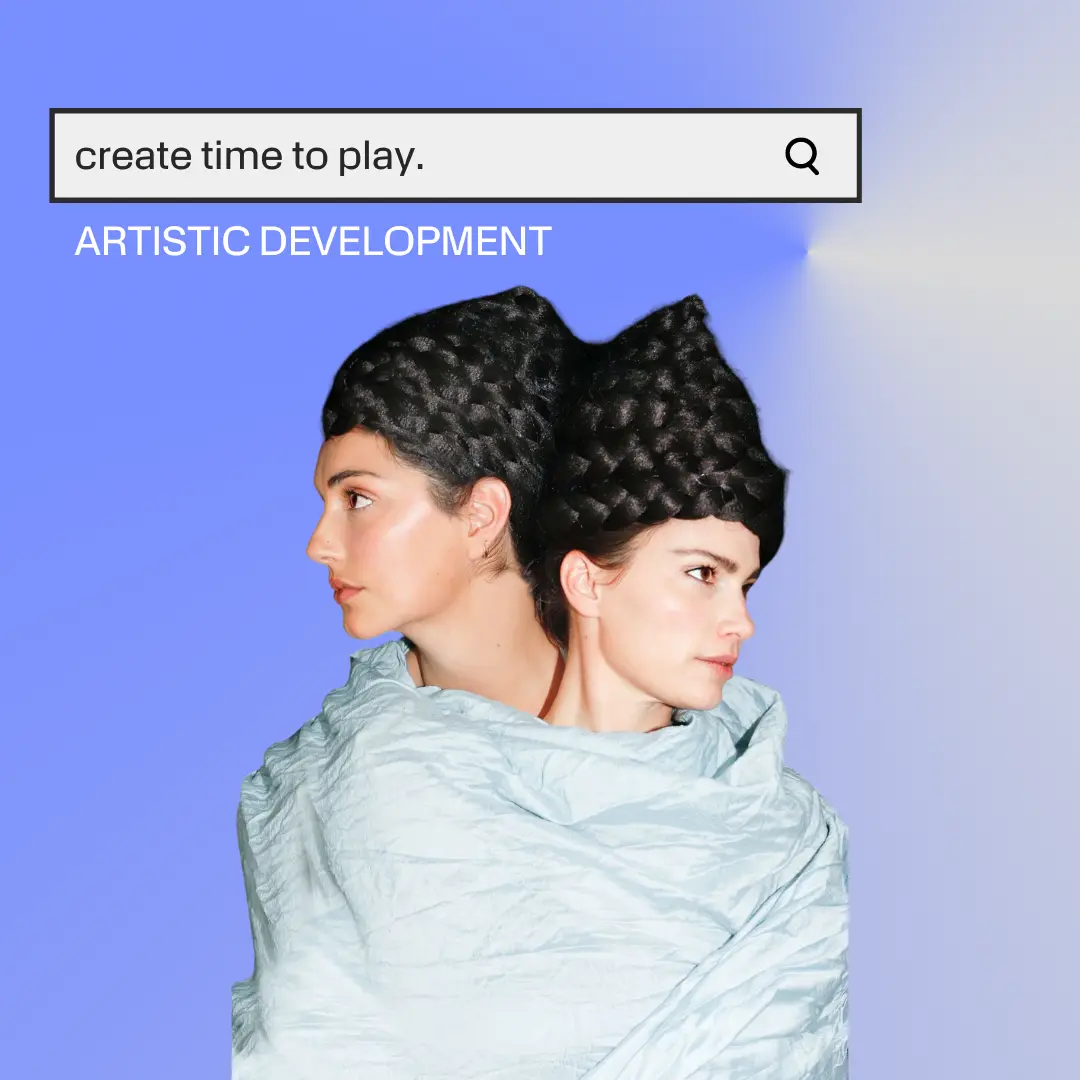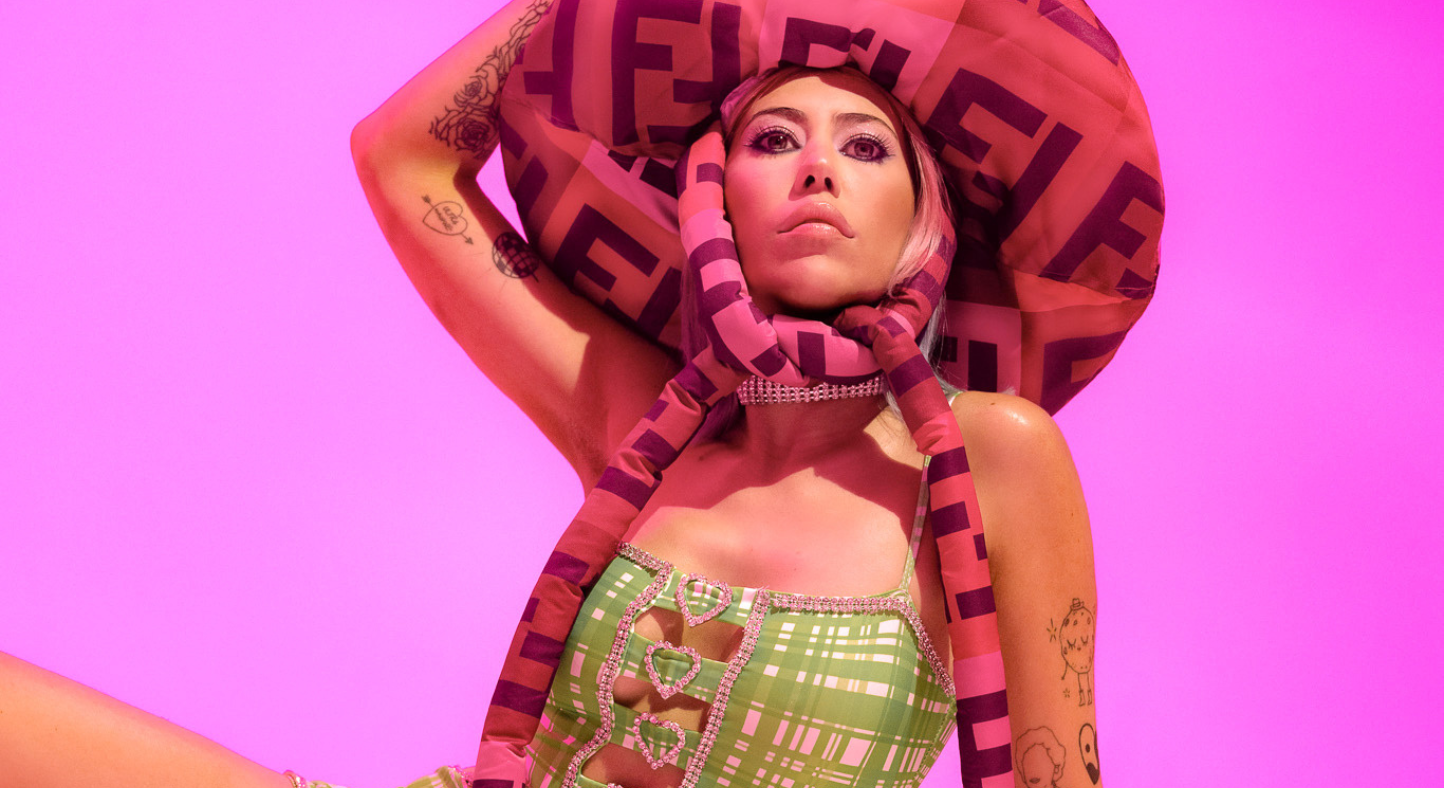Soccer Mommy on the enormity of our feelings
CH-V chats with indie rockstar about emotions and how they’re marketed.
Nashville singer-songwriter Sophie Allison AKA Soccer Mommy’s newest album, “Sometimes, Forever” picks up the loose threads of her sophomore record, while steering even more pleasingly into 90s alt-rock: brassy guitar providing the bedrock for her delicate, dreamily drawled vocals. The influences of one-time tour mates Liz Phair and Paramore are evident, and the pared-back storytelling contrasts beautifully with her anthemic, pop-literate hooks.
In 2020, Soccer Mommy went from underground favourite to radio, festival and magazine notoriety thanks to her record “Color Theory.” Allison had been making and releasing music under this moniker since her teens, however, so it took the world a minute to catch up to her vibe. In 2015, she moved to New York to study music business, but the wild, unpredictable head-rush of the live music scene seduced her. By the time she dropped out in 2017, she had a record deal with indie label Fat Possum and a ticket back to Nashville.
“For Young Hearts,” her first full-length album from 2016 is a dreamy, melancholic journal of youthful heartbreak, haunted by lonely whistles, adolescent adventures, acoustic melodies, languid and vulnerable paeans to teenage love. With “Sometimes, Forever,” she has partnered with producer Oneohtrix Point Never (Daniel Lopatin), who provides a sleeker sheen to the unashamedly DIY, indie attitude we’ve come to love and expect from Allison.
When we connect via Zoom, Allison, now 24, is in the South Nashville home she bought in January with her partner of six years (and her band’s guitarist), Julian Powell. It is not, she admits, the epitome of cool (try East Nashville for that!), but she is close to her parent’s home and great Latin American food joints. She is a generous interview subject: quick to begin her answers, often taking time after-the-fact to clarify her responses when her rushing thoughts have collided into several half-finished sentences. She regularly punctuates her sentences with “You know?” a reflex that complements her songs well, because as much as they are personal to her experiences, we often do know the feeling. We know the sensation she is inviting us to remember.
The following conversation has been edited and condensed for clarity.
Tell me about the title, “Sometimes, Forever” and how it encapsulates the mood and the themes running through this album.
The album has a lot of contrasting ideas, whether it’s from song to song, or even within the songs. There’s lots of light and dark clashing. For me, it’s very easy to experience my emotions with this sense of, Oh my god, this is all there is forever—to be completely consumed by a feeling. So, I wanted to capture this idea that something can be around forever, but that doesn’t mean it will always be so intense. Sometimes things just ebb and flow.
Has music enabled you to see how you’ve been able to remove yourself from the intensity of feelings, just be revising songs from years ago that remind you that you’ve moved on?
I think that, in general, I’m just someone whose brain is constantly running, you know? I’m always trying to think through things and get a very concrete answer about the way I feel or what I think. There have been certain periods of my life when it’s been really easy to decide that this is how it is, and it’s almost impossible to look past that concrete conclusion that you’ve reached. But I think songwriting is very helpful.
When I release an album, it’s been so long since I [first] wrote the songs—it’s crazy when you start revisiting them for recording purposes, and you can look back on these points in your life where you’re like, “Wow, I didn’t realize how much I really thought this was never gonna end,” or “I thought this was everything,” at the time. And really, it was just a period of my life.
Your song “Bones” refers to a pretty tough period of your life. Tell me about that.
When I wrote “Bones,” I wasn’t in a very good place, and I was not good to myself. When I was writing it, I was wanting to better myself, to take better care of myself, wanting to be good to myself and wanting to be happier. I was letting myself fall into this toxic pattern of being like, “Maybe I’m just not built that way. Maybe I can’t help myself, maybe I can’t be happy and I’m just supposed to be miserable.” It was also a reflection of, as a partner in a relationship, being a closed book and being a little bit melodramatic while suffering on your own.
Has your process of writing lyrics and music changed significantly since your first full length album?
My actual writing process is not any different. I sit. I play guitar and watch TV. I get a riff or a chord progression that I like, and I start coming up with melodies and lyrical ideas from that. That’s never changed, it’s always been the same process.
I’ve definitely changed a lot in terms of the things that inspire me to write. When I did “For Young Hearts,” I was 17 when I was writing some of those songs, and I was 16 when I wrote one song on there. The way I think about things has changed, but the process is the same as far as gathering these thoughts that have been ruminating for a while and plunging them into chord progression or lick that I’m liking.
When something really emotionally triggering happens in your life, a breakup or maybe something hugely exciting, do you write about it in the moment or do you take time to make sense of it?
I cannot write about stuff in the moment. I’m too confused when big things happen. It takes me a lot of time to solidify my thoughts… I have a lot of feelings.
There’s a growing demand on artists to really act as marketers and publicists for their own work on social media. Halsey has recently spoken out about the demands for “viral” TikTok videos. Have you felt pressured to curate social media in a way that sells your albums and what’s your attitude toward social media as a communication tool?
I’m not on social media. There are posts being made and I get the final say on whether they’re good to go, but I don’t have the apps downloaded. I can’t even get into my Twitter. I got off social media in 2020 and it was life changing. It helped my relationship with work immensely. It’s easier not being on it.
I’ll send my manager a selfie with a caption for him to go post. I do that kinda stuff for the fans, for people who wanna hear from me—and I have no problem with that. I don’t do TikTok and I don’t think I ever will, but there’s definitely pressure to do that kinda stuff. [But] I can’t even hate on a label asking me to do TikTok—I understand it’s a large platform for music right now, and I get that it’s about the music business making money. I’ve decided that part of this job is doing some things that you don’t want to do—like any other job—but if you’re really against it then say no. Be blunt about it, don’t leave the door open. There’s absolutely pressure, but if we can’t sell the music, then I’d just have to go get a job. [laughs]
You refer to coffee, uppers, alcohol and dessert in the first single “Shotgun.” Have you had your own battles with substances and was that an aspect of the music industry or the friends you had/have?
I haven’t had battles with substances. I drink, I’m not sober, but I don’t over-drink. I rarely go out. I do like the occasional drug, but I’m not someone who wants to use any kind of drug constantly. I also love coffee for a lot of reasons, but I don’t have an addictive personality.
Are there fellow artists you have worked with, toured with, or simply admired from afar, who have provided a model of the sort of artist, woman, or human you aspire to be and can you tell me about that?
A friend of mine, Sasami Ashworth is amazing, her stage presence and musicality. She doesn’t get enough credit for being an amazing guitarist and a really talented musician, but she’s always astounded me when we’ve toured together. Watching Kacey Musgraves and her band, who are so attuned to each other—every night, it was perfect.
In the spirit of celebrating dessert (a theme in “Shotgun”), here’s a tough question. If you could only live off one dessert for the rest of your life, and listen to one album, what would the soundtrack to your sweet life be?
Part of me would say ice cream, but it’s so cold and I wouldn’t want that in the winter. I would say cookies, I love homemade cookies—chocolate chip. As for the album, this is a very hard choice [to make], but a contender would be Slodive’s “Souvlaki.”
Do you have a current favourite on your own album?
I think my current favourite is “newdemo.” I was really excited about that one. I originally thought it might not make the album. I couldn’t imagine the end game, but once we started putting all this stuff on the track it became magical and amazing. It feels really special.
“Sometimes, Forever” is out now on all steaming platforms.
Process + Purpose is an interview series highlighting the creative process of artists and practitioners you should know.





















